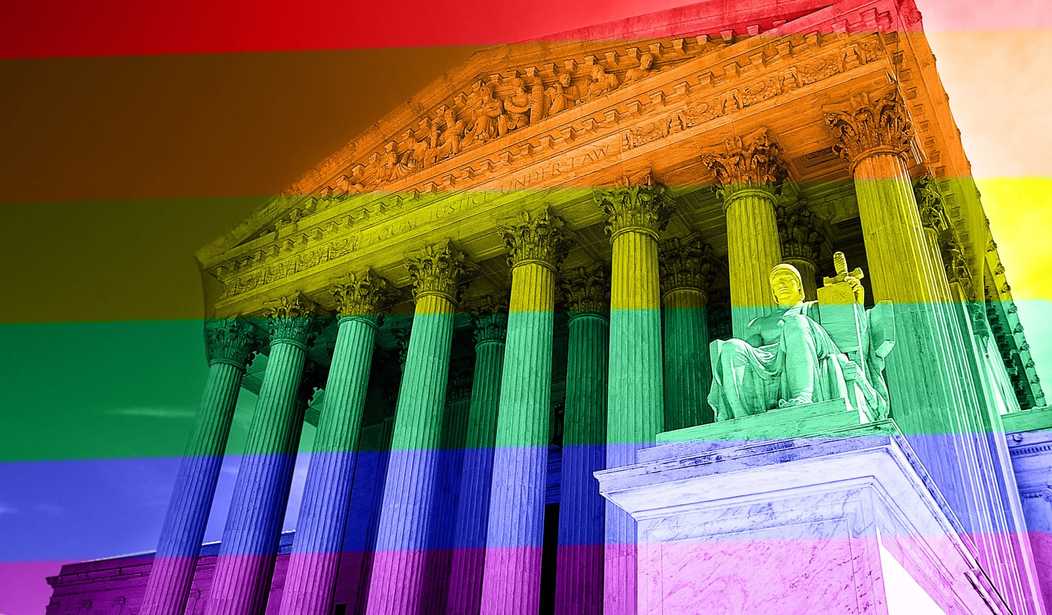Last Wednesday, the Supreme Court of British Columbia (B.C.) ruled that a 14-year-old girl may undergo transgender hormone “treatments” to support her transgender identity as a boy — without her father’s consent. The court went so far as to threaten to penalize the father’s speech. If he calls his daughter a girl, that would constitute “family violence,” which would be punishable by law.
The B.C. Supreme Court ruled that the girl (referred to as A.B.) “is exclusively entitled to consent to medical treatment for gender dysphoria and to take any necessary legal proceedings in relation to such medical treatment,” and that “attempting to persuade A.B. to abandon treatment for gender dysphoria; addressing A.B. by his birth name; referring to A.B. as a girl or with female pronouns whether to him directly or to third parties; shall be considered to be family violence under s. 38 of the Family Law Act.”
According to the Family Law Act, “family violence” includes “psychological or emotional abuse of a family member, including intimidation, harassment, coercion or threats, including threats respecting other persons, pets or property, unreasonable restrictions on, or prevention of, a family member’s financial or personal autonomy.” Such an action is considered “family violence” along with “physical abuse of a family member” and “sexual abuse of a family member.”
Indeed, the court may even have considered the father’s attempts to convince his daughter to reconsider her transgender identity to be “physical abuse,” since that includes “deprivation of the necessities of life.” The ruling cited A.B.’s testimony to psychologists that she had attempted suicide, and at least one psychologist concluded that her suicide attempt was linked to her gender dysphoria (the persistent condition of identifying with the gender opposite one’s birth sex).
News outlets have referred to the girl as Maxine (not her real name) and her father as Clark (also a pseudonym). Maxine was encouraged by her school counselor to identify as a boy while in seventh grade. Dr. Brenden Hursh at B.C. Children’s Hospital decided that Maxine should take testosterone. Clark disagreed, filing an injunction to stop the hormone “treatments.”
“The government has taken over my parental rights,” the father told The Federalist’s Jeremiah Keenan. “They’re using [Maxine] like she’s a guinea pig in an experiment … Is BC Children’s Hospital going to be there in 5 years when she rejects [her male identity]? No they’re not. They don’t care. They want numbers.”
Contrary to the claims of activists, children diagnosed with gender dysphoria often end up embracing their biological sex as adults. In his interview with The Federalist, Clark referenced reports from England showing that transgender clinics have bowed to pressure from activists to fast-track children into hormone treatments. These hormone treatments carry irreversible side-effects, and those who reject their transgender identities may be permanently scarred.
“These activists are taking over,” the father said, “and it’s not in the interests of our kids. It’s in the interests of self-promotion and the things that they want to do and accomplish.”
While the B.C. Supreme Court referred to Maxine as a boy with male pronouns, Clark referred to his daughter as a girl, “because she is a girl. Her DNA will not change through all these experiments that they do.”
He understood that this statement could be seen as “family violence” under the court’s ruling, but he said he could not honestly take any other stand. Instead, he vowed to appeal the ruling.
“We’re gonna fight this right up to the Supreme Court of Canada,” he said. “We’re not quitting.”
Following the lead of organizations like the Southern Poverty Law Center (SPLC), activists have demonized dissent on this issue in particular. Feminists have been banned by Twitter and kicked out of bars for standing for biology against transgender identity. British police called a 74-year-old woman because she tweeted in favor of biology, asking her to withdraw her statements. In a bone-chilling example, a transgender activist tweeted that he wanted to drink the “bone broth” of people who disagree with transgender identity. He was not banned from Twitter.
In Ohio, parents lost custody of their 17-year-old daughter last year because they disagreed with her identity as a boy.
Activists — and social media companies like Twitter — insist that if a girl with gender dysphoria is treated like a girl, she will commit suicide. So referring to her by female pronouns (“misgendering”) or even calling her by her given name (“deadnaming”) is a form of violence, pushing her toward committing suicide.
As these activists overreach, however, many liberal feminists have started pushing back. Indeed, lesbians argue that transgender identity constitutes “conversion therapy” — telling lesbian women they are really men — and “rape culture” — telling lesbian women they must be open to sex with biological men. A rising chorus of feminist voices is joining conservatives in opposing this destructive ideology, and former transgender people are speaking out.
This Canadian court ruling officially declared dissent on transgender identity not only illegal but “family violence.” If transgender activists succeed in the U.S., as it seems they have in Canada, using the correct pronouns for your own daughter could land you in jail. In June, I will become the father of a baby girl, so this hits home for me. Americans must defend parental rights, and so should Canadians. If this case is appealed, Canada’s Supreme Court should reverse the ruling.
In the meantime, parents everywhere should heed this warning — their right to speak the truth is under assault. If the government can redefine reality to the point that calling your own daughter a girl is considered violence, where is the check on government power?
Follow Tyler O’Neil, the author of this article, on Twitter at @Tyler2ONeil.









Join the conversation as a VIP Member